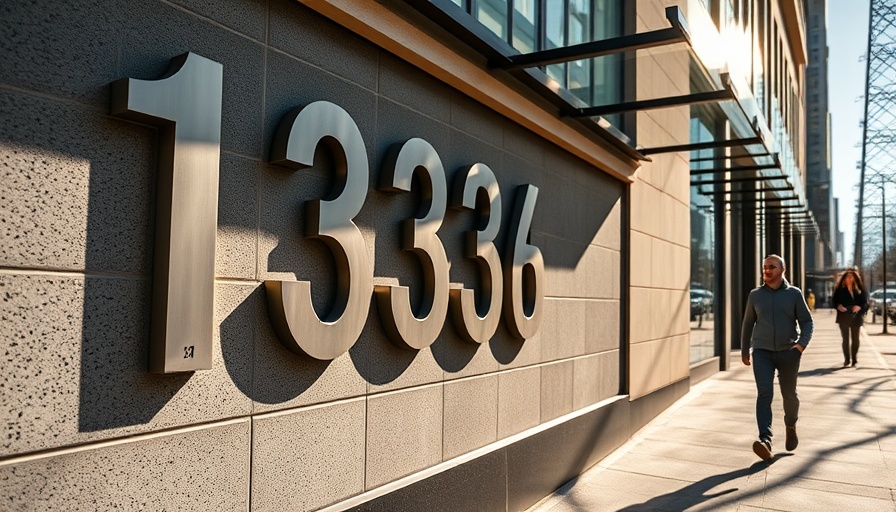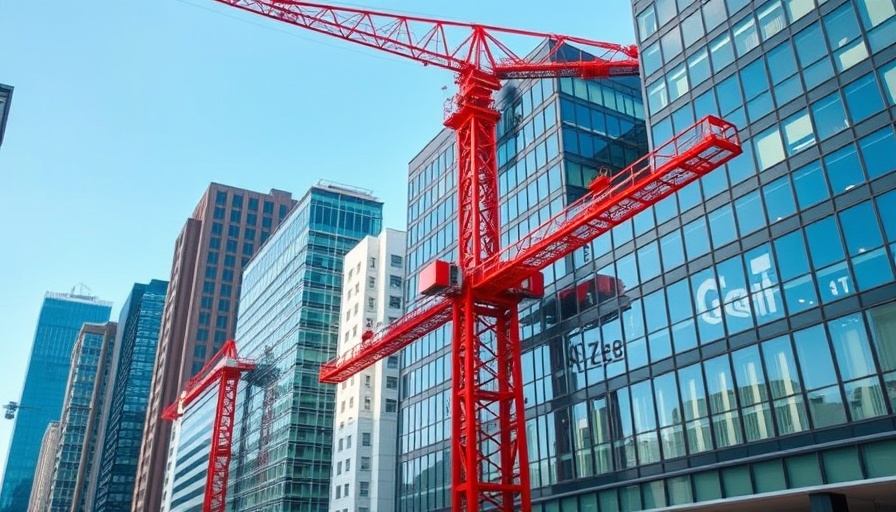
Big Investment in AI Alley: What It Means for San Francisco
In a significant highlight for San Francisco’s commercial real estate sector, a 25-story office tower known as 300 Howard St. has been sold for an impressive $111.3 million. This sale stands out not just because of the hefty price tag but also as the largest transaction of its kind in the year thus far. The newly purchased property aims to attract a wave of artificial intelligence (AI) companies amid a revitalizing market.
The Renovation Vision: Turning Challenges into Opportunities
This transformation is spearheaded by a partnership between DivcoWest and Blackstone Real Estate, who recognized the opportunity to retrofit an empty building into a modern workspace that fosters the burgeoning AI field. Their strategy includes “hospitality-inspired upgrades” that focus on making offices more appealing to employees returning from remote work regimes—one such planned enhancement is a conference center designed to streamline collaboration and innovation.
The Evolution of 300 Howard Street: A Historical Perspective
300 Howard St. has a storied past, having housed recognizable names like StubHub, Fitbit, and eBay over the years. Its transition from a bustling tech hub to vacant property highlights a wider trend in San Francisco’s commercial space, exacerbated by a decrease in office occupancy rates driven by the pandemic. What does this mean for the future of office spaces in urban environments as we see companies shifting their operational models?
A Shift in Market Dynamics: The Case of Office Spaces
As a sign of changing times, this sale marks the first San Francisco office property transaction over $100 million in 2025, indicating a potential slump in market values. To give context, DivcoWest’s earlier investment in 2020 was at a valuation 70% higher than their recent sale price. This reflecting a stark decrease significantly emphasizes that investors continue to grapple with the shifting landscapes of urban workplaces.
Real Estate Trends: Investment Strategies Post-Pandemic
While some may view the tech industry's retreat from traditional office setups as a concerning trend, other investors, including Blackstone, remain optimistic about the potential for discounts and upgrades. Interestingly, Blackstone is also planning to offload another nearby asset, 45 Fremont St., which was written down to negligible value in 2023. This reveals a critical insight into the broader patterns of risk management and portfolio strategy in today's real estate market.
Looking Ahead: Future Insights and Predictions
The question remains—how can nearby properties adapt and attract future tenants? Mindful renovations may serve as a blueprint for other owners in the area by prioritizing wellness, flexibility, and community vibes which could create more engaging work environments. As AI companies ramp up their hiring, there is a notable opportunity for the Bay Area to redefine the workplace experience.
Why Investors Should Care About AI Alley
Investing in properties that cater to AI and technology firms isn’t just an attempt to fill vacant spaces but reflects a pivot towards future innovation. As developments like the Salesforce Park area flourish, these properties position themselves as beacons of progress within the tech landscape. Organizations looking to return to the office can leverage such spaces enhancing their reputations in establishing a vibrant workplace culture.
Engaging the Community: The Broader Implications of the Sale
This sale and subsequent renovations open a dialogue about the future significance of workspaces and collaboration in a post-COVID world. Community engagement is pivotal; companies invested in local developments foster greater ties, contributing to wins beyond purely economic outcomes. This also encourages discussions about urban planning, work-life balance, and city development as we navigate this new era.
In conclusion, as San Francisco works to redefine its office spaces, both investors and tenants alike are given the opportunity to rethink how we engage in our professional lives. The sale of 300 Howard St. not only underscores the shifting tides of commercial real estate but serves as an invitation to innovate in the face of evolving work habits. Interested in following the latest developments and opportunities emerging from the interactions between tech and real estate? Stay informed, as this narrative will continue to grow and shape your local landscape.
 Add Row
Add Row  Add
Add 




 Add Row
Add Row  Add
Add 

Write A Comment